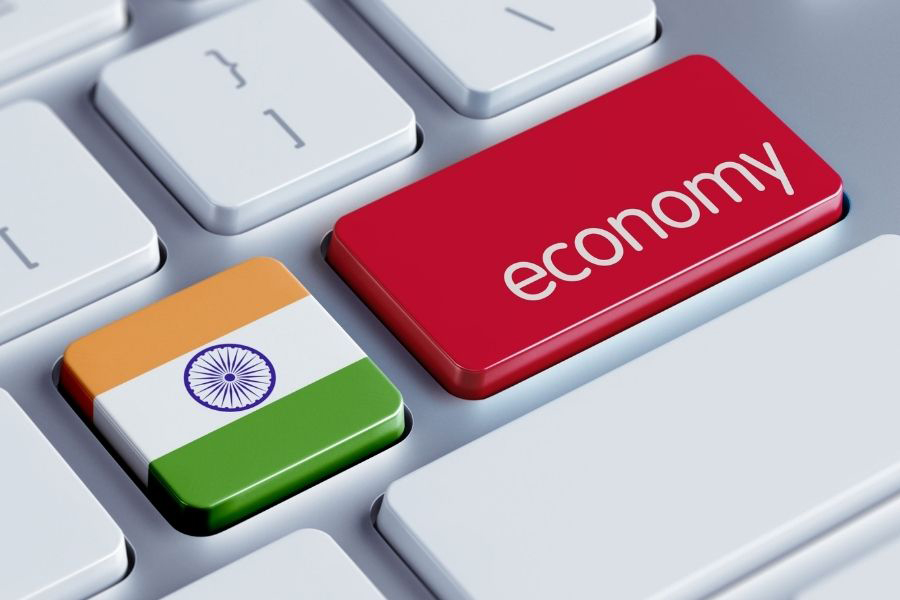Budget 2023-24: MSMEs to drive growth?
The MSME sector of India contributes around 33% of the country’s total GDP and is predicted to contribute worth US$ 1 trillion to India’s total exports by 2028. With the upcoming Budget 2023-24, the Ministry of Micro, Small and Medium Enterprises expects extension of credit schemes, reduction in tariffs and duties on imports and exports to make it more affordable for MSMEs to participate in international trade among others.

Image credit: Shutterstock
India is home to a large base of 7.9 million registered Micro, Small and Medium Enterprises (MSMEs). The sector contributes around 33% of the country’s total GDP and accounts for around 120 million jobs across industries and regions.
Contributing towards wealth creation at a grass-root level, the segment also consists of generally neglected and small scale entrepreneurs like women, marginal entrepreneurs, local artisans etc.
As a step to enhance Ease of Doing Business for MSMEs, the government introduced the Udyam Portal in 2020. The portal enables entrepreneurs to utilize benefits from the schemes introduced by Ministry of MSME and for priority sector lending from banks.
Number of MSMEs registered on Udyam portal till Dec 2022
| Micro | Small | Medium | Total | |
| Number of MSMEs registered | 11,870,882 | 428,289 | 39,524 | 12,338,695 |
Source: pib.gov.in
In FY22, 8.59 lakh women-led MSMEs got registered on the Udyam portal which is 17% of the total MSME registration. Around 63.4 million MSMEs contribute 6.11% of the manufacturing GDP and 24.63% of services GDP in India.
MSME exports
The Directorate General of Commercial Intelligence & Statistics (DGCIS), shared a data on export of specified MSME related products in all India exports. It has depicted a YoY decline from 25.03% to 42.67% in FY2022-23 (Up to August 2022), despite an increase in number of active MSMEs.
MSME share in all India exports 2022-23
| Description | 2019-20 | 2020-21 | 2021-22 | 2022-23 (up to Aug. 2022) |
| Share of exports of MSME related products in all India exports (in %) | 49.77 | 49.35 | 45.03 | 42.67 |
Source: pib.gov.in
Top export destinations for Indian MSMEs in FY22 were the US (US$ 54.7 billion), UAE (US$ 13.4 billion), Hong Kong (US$ 9.93 billion), UK (US$ 7.54 billion), Germany (US$ 7.19 billion), China (US$ 5.16 billion), Belgium (US$ 4.73 billion).
Government initiatives to boost MSMEs
As India’s GDP is poised to reach the US$ 5 trillion mark, MSMEs would play a pivotal role in accelerating the country’s progress towards this milestone through heavy facilitation by the government. Exports from this sector are projected to exceed US$ 1 trillion by 2028.
The government has taken a number of recent initiatives to boost and support the MSME industry in India, some of them are mentioned below:
- ₹ 5 lakh crore Collateral Free Automatic Loans for business, including MSMEs.
- “Udyam Registration” for MSMEs, for Ease of Doing Business
- No global tenders for procurement up to ₹ 200 crores
- Launch of an online portal “Champions” to cover many aspects of e-governance including grievance redress and handholding of MSMEs
- Inclusion of Retail and Wholesale trades as MSMEs w.e.f on 2nd July 2021.
With growing economy, MSMEs have a distinct opportunity to expand their reach and distribution globally. The increase in exports of these small businesses is expected to create more job opportunities for both semi-skilled and unskilled workers.
Budget 2023-24
The MSME sector faces various barriers like funding constraints, marketing of their products, labour related challenges etc. The Union Budget 2022 offered the pandemic-hit sector some relief by revamping the Credit Guarantee Fund Trust for Micro and Small Enterprises (CGTMSE) and extending the Emergency Credit Line Guarantee Scheme (ECLGS) until March 2023. The Budget allocation for FY 2021-22 for the MSME was ₹ 15,700 crore.
With the economy recovering from the pandemic and the upcoming announcement of the budget 2023-24, the government is expected to address various challenges of the sector and hike budget allocations. Moving ahead, let’s find out what are the major expectations of the sector from Budget 2023-24:
- Extension of credit schemes, which are expiring this year.
- Enhanced access to working capital.
- Improvement in GST system by setting up dedicated helplines with vernacular language support and providing more guidance to micro and small MSMEs.
- Digitalization of Kisan Credit Cards (KCC) and loans for Small and Medium Enterprises (SMEs) to speed up the loan process, to ensure easy access to formal channels of credit.
- Implementation of policies to lower input costs, increase liquidity and promote financial inclusion by offering small firms with affordable financial products.
- Launch of Draft National MSME Policy which would ensure the upgradation of technology further promoting competitiveness, cluster and infrastructure development etc.
- Schemes and policies focusing women entrepreneurs, as they contribute collectively to hardly 3% of India’s industrial output and barely comprise 20% of India’s 63 million MSMEs.
- Tax exemptions for setting up businesses in rural areas and financial assistance for the purchase of machinery and equipment.
- The industry expects the benefits of Production Linked Incentive (PLI) schemes directly allocated to different MSMEs, which are currently targeted at the major manufacturing industries.
- Reduction in tariffs and duties on imports and exports to make it more affordable for MSMEs to participate in international trade.
Conclusion
The government introduced the Make in India program to increase domestic production and reduce dependence on foreign imports with improving India’s rank on the Ease of Doing Business index. To further develop Indian MSMEs competitiveness in the global market, the government is expected to announce changes in the sector’s duty structure for imports and exports in the Union Budget.
India’s vision of Atmanirbhar Bharat will be possible only when MSMEs are given a big push and tap the true potential of the sector. Timely introduction and effective implementation of policies will enable the sector to contribute even more to India’s rising GDP in the near future.
Latest article:
- Blue Revolution 2.0: Transformative Measures for Inland Fisheries Cooperatives
- Powering progress: India’s solar module manufacturing on boom
- India Leads QS 2024, more universities than China













Leave a comment